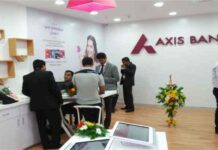
Inclusivity as Currency: HR Leaders Spearheading the Quest for LGBTQ+ Employees Integration in the Workplace
In the nexus of today’s global business environment, an evolving dimension has surfaced: embracing diversity as an intrinsic element of organizational culture, particularly about LGBTQ+ employees.
Astute corporate leaders have recognized the twin rewards of moral rectitude and enhanced economic performance in fostering inclusivity.
HR leaders’ role in embedding this ethos within the corporate fabric is paramount. I want to provide a framework to help our global HR colleagues. I will also spotlight three corporations that have risen as idols in the domain to help you with practical examples.
Anatomy of HR Leadership
HR departments serve as the nexus for organizational culture. For corporate behemoths, the subtext in policies, recruitment, employee development, and employee engagement signals the company’s core values.
Through five key domains, HR leaders can redefine the corporate landscape for LGBTQ+ employees so that they can bring their whole selves to work and feel a sense of belonging.
Policy Rigor
Policies are expected to enable employees to feel engaged and feel a sense of belonging. Building fortifications against discrimination (on any count) begins with comprehensive policies.
HR leaders should craft a framework that includes recruitment, promotion, and benefits biases. This tapestry must be woven with particular threads that ensure all policies, including healthcare policies, recognize and are attuned to the needs of LGBTQ+ employees.
Educational Imperatives
An educated and knowledgeable workforce is a bulwark against prejudice. HR leaders enable this by deploying training regimens encompassing sensitivity training, allyship development, and a concentrated focus on dismantling unconscious biases.
Employee Resource Groups (ERGs) as Catalysts
By fostering ERGs focusing on LGBTQ+ issues, HR leaders may provide platforms for employees to forge connections, share experiences, and precipitate change from within the organization. Do you have ERGs in your organizations? If not, why not think about that to signal your commitment?
Creating a Supportive Environment through Mental Well-being Initiatives
An often overlooked yet critical domain where HR leaders can make a significant impact is the mental well-being of LGBTQ+ employees. Given the unique challenges and stressors that individuals within the LGBTQ+ community may face, companies should offer support systems such as counseling services, mental health days, and programs that address specific concerns.
Such programs go a long way in signifying an organization’s commitment to a holistically supportive environment.
External Engagement and Corporate Advocacy
Finally, HR leaders increasingly recognize the importance of external engagement in building an inclusive brand image. You can bring this to life by forming partnerships with LGBTQ+ organizations, participating in Pride events, and engaging in advocacy at the policy level.
Corporate advocacy can be a powerful tool for societal change, and by taking stances on issues that affect the LGBTQ+ community, companies can demonstrate their commitment to inclusivity beyond their office walls.
If you are looking for examples that you can speak to. Here are three firms that have stood out for me as exemplary approaches.
Salesforce: Championing Equality
Salesforce’s unrelenting pursuit of inclusivity is embodied in “Outforce,” its ERG, which serves as a gathering place for employees who identify as or are allies of the LGBTQ+ community.
Outforce’s participation in policy consultations ensures Salesforce’s policies remain avant-garde. Moreover, when Marc Benioff, the firm’s CEO, took a public stance against legislation deemed harmful to the LGBTQ+ community, it showcased that corporate power can be harnessed for societal progress.
Google: An Algorithm for Inclusion
The Silicon Valley juggernaut, Google, has enshrined diversity within its operating code. Its “Gayglers” ERG operates at the confluence of support, advocacy, and policy advice. The comprehensive healthcare benefits provided to LGBTQ+ employees are laudable, as is Google’s unabashed support for LGBTQ+ rights through its extensive platform to commemorate events like Pride.
Accenture: Consultancy with a Conscience
Accenture, the global professional services titan, exemplifies inclusivity. Its Pride ERG is not merely an appendage but an essential part of the organization.
Accenture has committed to unparalleled transparency by releasing demographic data, including gender identity and sexual orientation, thereby holding itself to account. Accenture’s training modules are finely honed to include allyship and a nuanced understanding of gender identity.
Bottomline
The multifaceted nature of inclusion necessitates that HR leaders operate across several domains to establish truly inclusive environments.
Through policy development, educational programs, fostering ERGs, mental well-being initiatives, and external engagement, companies can create a holistic approach to supporting LGBTQ+ employees. While the firms I have listed above are just just a sampling of this space, there are many others I could have cited.
The key is to constantly and consistently stay focused here. There is nothing called status quo; we must develop better policies, else we may regress.
As we progress in an age where diversity and inclusion are rightly viewed as invaluable corporate assets, it becomes imperative for HR leaders to innovate and adapt their approaches to LGBTQ+ inclusion continually.
Fostering a rich, diverse, and inclusive culture is an ethical obligation and a conduit for sustained corporate success in the modern world.








